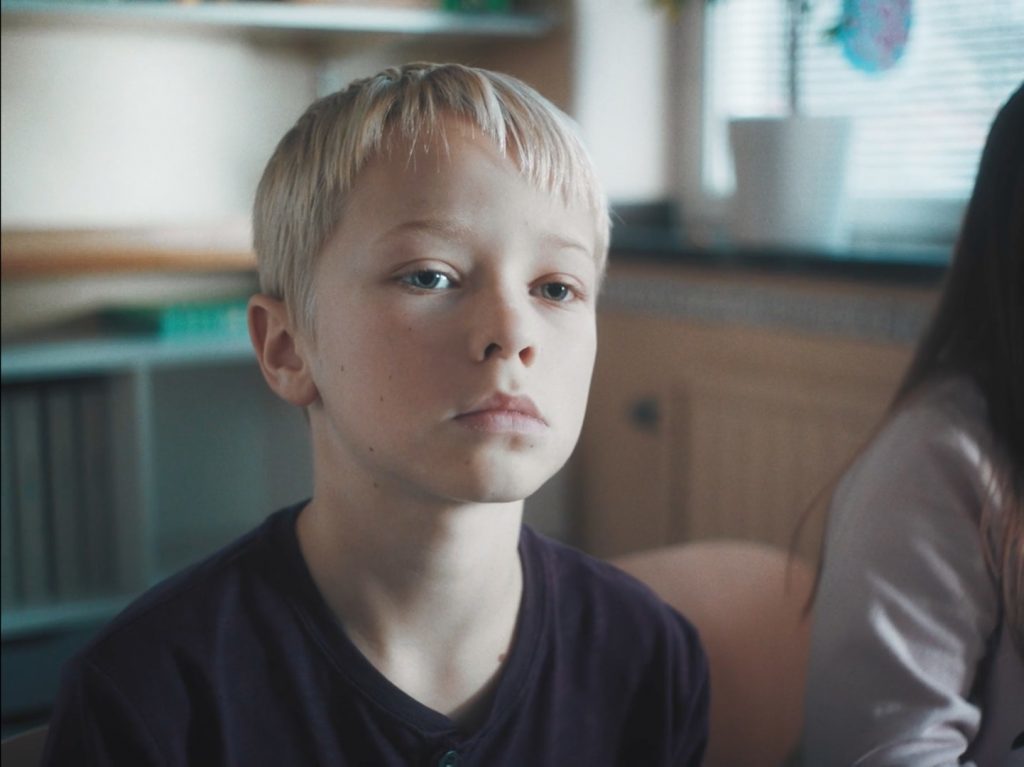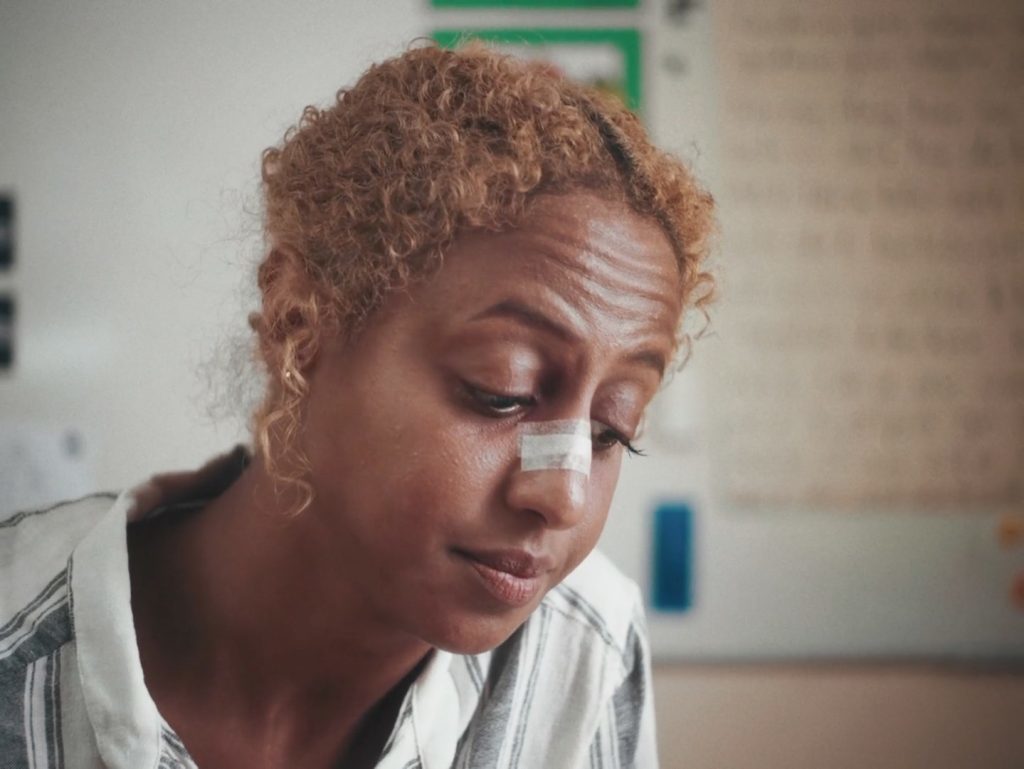
Case Study: 2nd Class
A teacher is attacked by a nazi. When she returns to school, she discovers that one of her students is the son of her assailant.
Geplaatst op 8 maart 2019
A teacher is attacked by a nazi. When she returns to school, she discovers that one of her students is the son of her assailant.
Geplaatst op 8 maart 2019Jimmy Olsson (39) was born in the south of Sweden in 1980 and moved to Stockholm in 2004, where he is based today. He started to work with film in 2002 and has worked in nearly every position there is behind the camera. In 2004, he went to a film school in Stockholm for two years. He is known for Ceasar (2014), Repressed (2011) and 2nd Class (2018). Jimmy usually writes comedy, or dark drama with a hint of comedy in it.
"You have to work hard to make your film fly."
“In august 2017 the Charlottesville riots happened; when I read about that, I got really upset and at the same time similar things happened in Sweden and all over Europe as well. So I thought about it – where does it all start? How do people learn how to hate?”
“With all the fear and neo nazis uprising nowadays, I felt like we need to see how we talk and educate our kids more. It starts there. Kids are being left out and they try to find a place where they feel accepted and sometimes they end up in bad places.”
“I wrote the script in less than two days. No consult was involved. I knew this was going to work. I have written quite a few scripts so I’m in a place where I know what works or not. I did two drafts. On set I changed one scene very much. I realized my script was very pretentious there, so I took away everything – and now it basically says the same thing as I wanted to convey, but without words. Due to budget restrictions we also had to change the nazi scene, but we solved it with a one taker. This actually made it more intense and suspenseful, so that change was good as well.”

“As I was one of the producers as well, I more or less wrote the script as I intended to shoot it, although I had an important collab with the DOP. We decided we didn’t want to have mainstream coverage. We wanted to shoot the shots we needed only, no safety – we relied on our experiment to have as little coverage as possible to let the audience build up their perception of the world outside the frame. We wanted to shoot 4:3 to really make a frame around the lead character Charlotte all the time. The shoot was tight, but in the end all went well and we didn’t really have any arguments.”
“I got in touch with a production company I work with sometimes. Although they usually do commercials, they pitched in some of their time and money, so that was really helpful. I got sponsored by a camera rental place completely. That was a huge relief, to be able to get what we needed for the shoot. I also contacted a production manager who helped me break down the script to see how many days we needed. Since we couldn’t pay the crew much, we decided to shoot it over 2 quite long days. After the film was almost finished, we did get some small funding, but a lot of people helped us out without demanding any money, for which I am very grateful.”
“The edit was more difficult than expected. I let the main editor of the production company do the first edit, but I think he misunderstood how it was intended to be edited because this particular film wasn’t supposed to be edited in a ‘normal’ way, so to speak. The DOP and I had a vision of how the scenes were going to be cut so we re-edited the movie for a couple of days, until we had the final film. It turned out exactly the same order as the scenes were written.”
“Since we practically didn’t have any money, I couldn’t go to my first choices of people whom I trusted – so I had to try and work with new people; the sound design process wasn’t really a joy. I don’t blame anyone for it, because it can be difficult to achieve greatness for someone who hasn’t been in the business for a long time. The sound design works, but I would have liked some more energy and finesse to it. There is this one great artist however, Jason Alexander, who allowed me to use one of his songs – so I’m very happy about that.”
“We had a colorist called Sebastian Guest, an Irishman I knew from before and he and his company did the grade with the vision of our DOP, Bo Pärletun. They also did the DCP. We encountered no difficulty with the material at all.”

“At first I used some of the money I received from funding to push out the film via filmfreeway, withoutabox, reelport and shortfilmdepot. I have done some films before so I know what kind of festivals I wanted to reach; I contacted a film festival agency in Berlin, they took the film and I penned a contract with them for a year – so they are handling the submissions now.”
“This film has had a lot of screenings so far. Around 70 festivals in 35 countries in 9 months. Most of the festivals are really professional. You have to put lots of work as filmmaker into this, to make things happen. Sending files, subtitles, press kits and stuff like that. You have to work hard to make your film fly.”
“Find people who want the same as you and engage them into a project. Our budget for this film was around 3500 euros… that’s not much. Plan your project in detail. That way you can make a film look good, even on a low budge. Make sure you feel the script is good. Send it to some friends and colleagues beforehand to see what kind of feedback you get. If you have a director who inspires you, use that and see what you can make out of it. What’s their style and what appeals to you? What story world would you like to try? Be sure to contain all the ideas and inspirations into a little bubble you are comfortable with.”